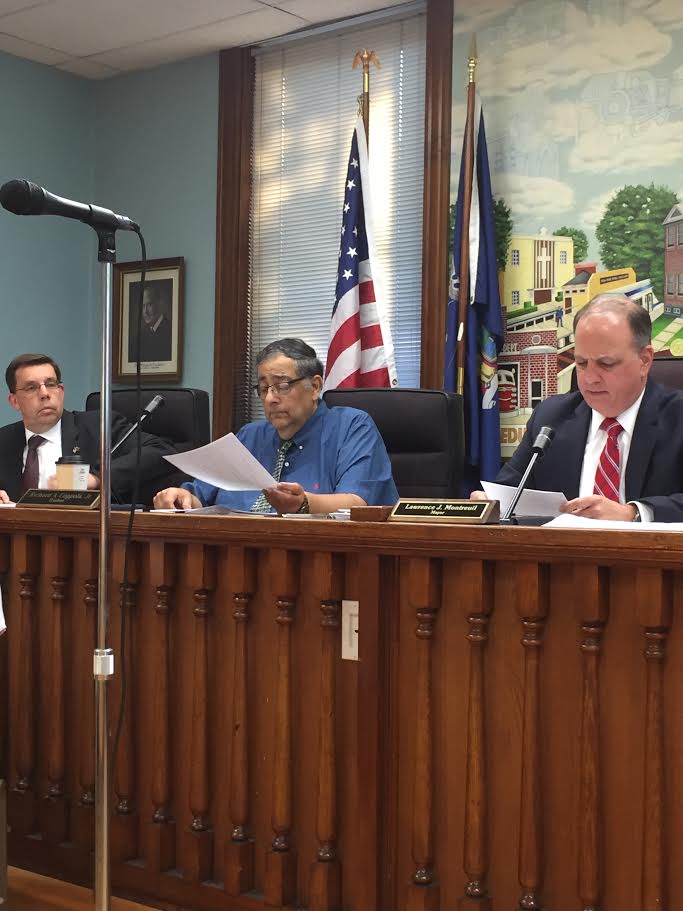
The Village of New Hyde Park Board of Trustees on Tuesday voted unanimously to approve amendments to zoning laws to regulate potential medical and recreational marijuana dispensaries, anticipating the legalization of the substance at the state level.
At a public hearing, Mayor Lawrence Montreuil said that though the board understands that no action has been taken yet by the state, the village is better served by being “proactive rather than reactive.”
“This law is not to prohibit, but rather regulate whatever happens,” Montreuil said.
Both medical and potential recreational marijuana dispensaries will be confined to the village’s “adult-use zones,” areas where storefronts like piercing and tattoo parlors, adult novelty shops and hookah bars, among others, are allowed to operate.
The zones are also intentionally distant from areas including residences, schools and houses of worship, according to Montreuil.
The Villages of Mineola and Floral Park have also voted to zone and regulate marijuana dispensaries in a similar fashion. The Mineola board established that any dispensary interested in opening in the village would be welcome in the industrial zone, and Floral Park voted Tuesday night to limit store openings to distinct districts in the village.
The Town of North Hempstead has already passed three local laws to control sales at medical and potential recreational marijuana stores, including a ban on the sale of recreational marijuana in unincorporated areas of the town.
In New Hyde Park, no residents commented on the zoning regulations or potential legalization of the substance, and the board unanimously approved the amendment to local law and a resolution adding potential recreational marijuana dispensaries to the list of businesses appropriate in the adult-use zone.
After the hearing, the board held its regularly scheduled monthly meeting.
Trustee Rainer Burger, the board’s liaison to the Long Island Rail Road third track expansion project, said that the village is essentially “in the full bore of the project,” moving forward and that there have been “a number of frustrating events” relating to aspects of the project recently.
According to Burger, 3TC, the third track contractors, failed to make the board aware of weekend work and road closures in the village in a timely manner on several occasions, and miscommunications have resulted in inconvenient water shortages to residents.
In addition to the miscommunications, Burger said that work relating to the elimination of the grade crossing at Covert Avenue has been delayed.
The beginning of driving 180 piles into the ground at Covert for the below-grade crossing has been pushed back to Feb. 25, and the total closure of the area surrounding the tracks has been set for April 15.
Montreuil said he thought the project is becoming a growing inconvenience, and the board will continue to represent residents’ concerns as construction increases.






